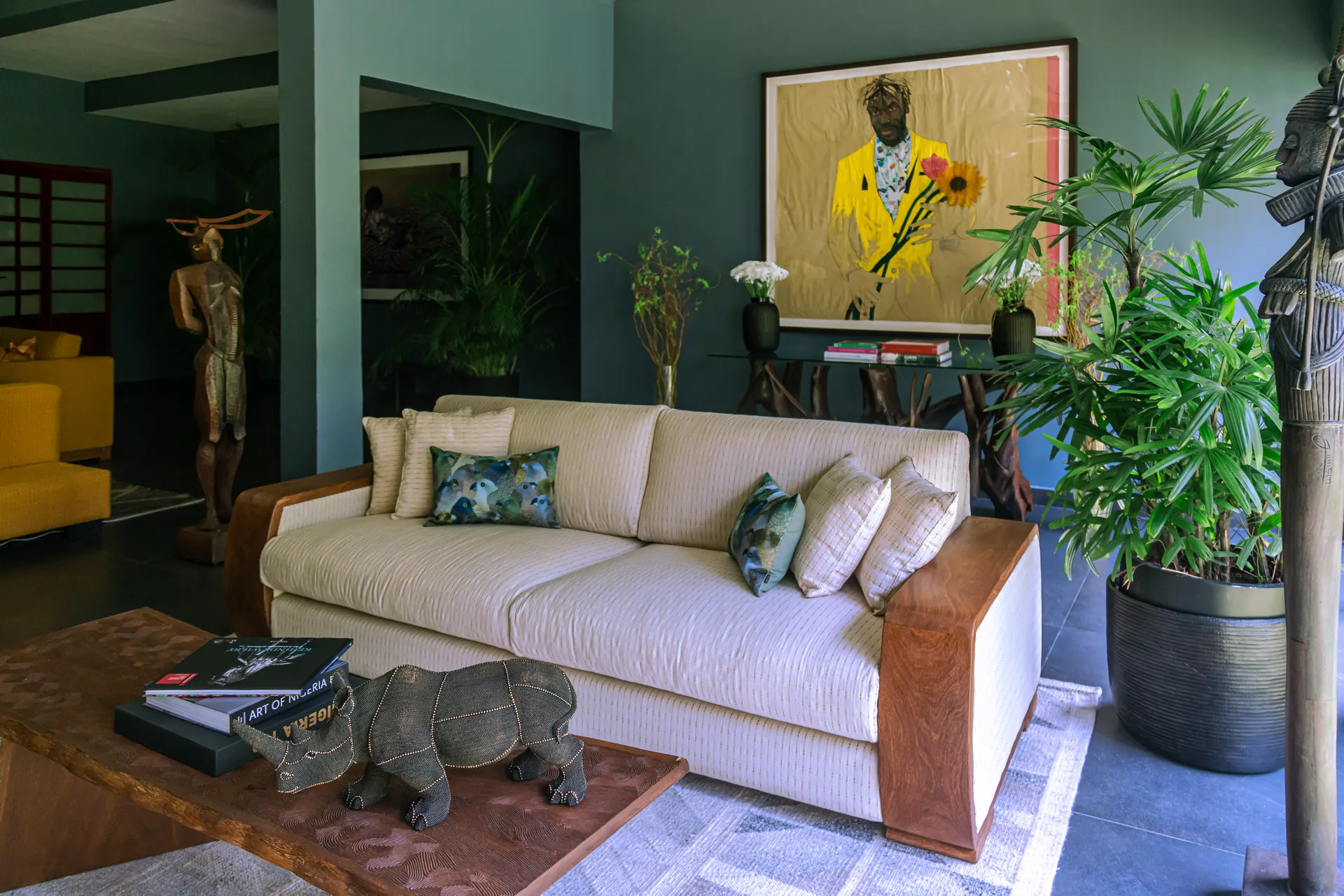When you step into a Nigerian home, you are entering a world rich with cultural heritage and traditions. Nigerian architecture and interior design reflect a diverse mix of ethnic backgrounds, climates, and historical influences. From the bustling neighbourhoods of Lagos to the serene landscapes of Kaduna, each home tells a story of family, community, and a deep connection to culture.
Architectural Styles
Nigerian architecture is a fascinating blend of traditional and contemporary styles, reflecting the country’s complex history and diverse ethnic groups. In the northern regions, you’ll often find homes with mud walls and thatched roofs, a style that keeps the interiors cool under the hot Saharan sun. These structures, often called “Sukkah” or traditional Hausa buildings, are made using locally sourced materials and are known for their sustainability and eco-friendliness.
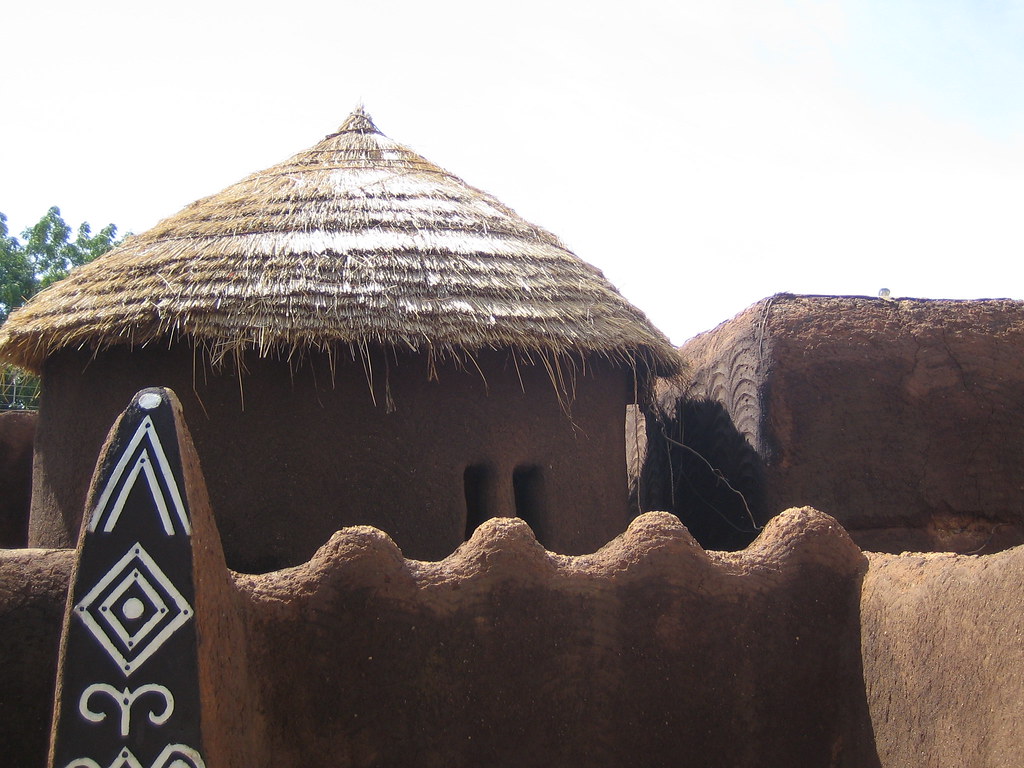
Moving south, the influence of tropical weather is evident in the widespread use of high-pitched roofs to facilitate water drainage during the rainy season. Modern Nigerian homes, particularly in urban areas like Abuja and Lagos, showcase a mix of Western and African influences. These houses often feature bold geometric shapes, large windows, and steep roofs, combining luxury with functionality.
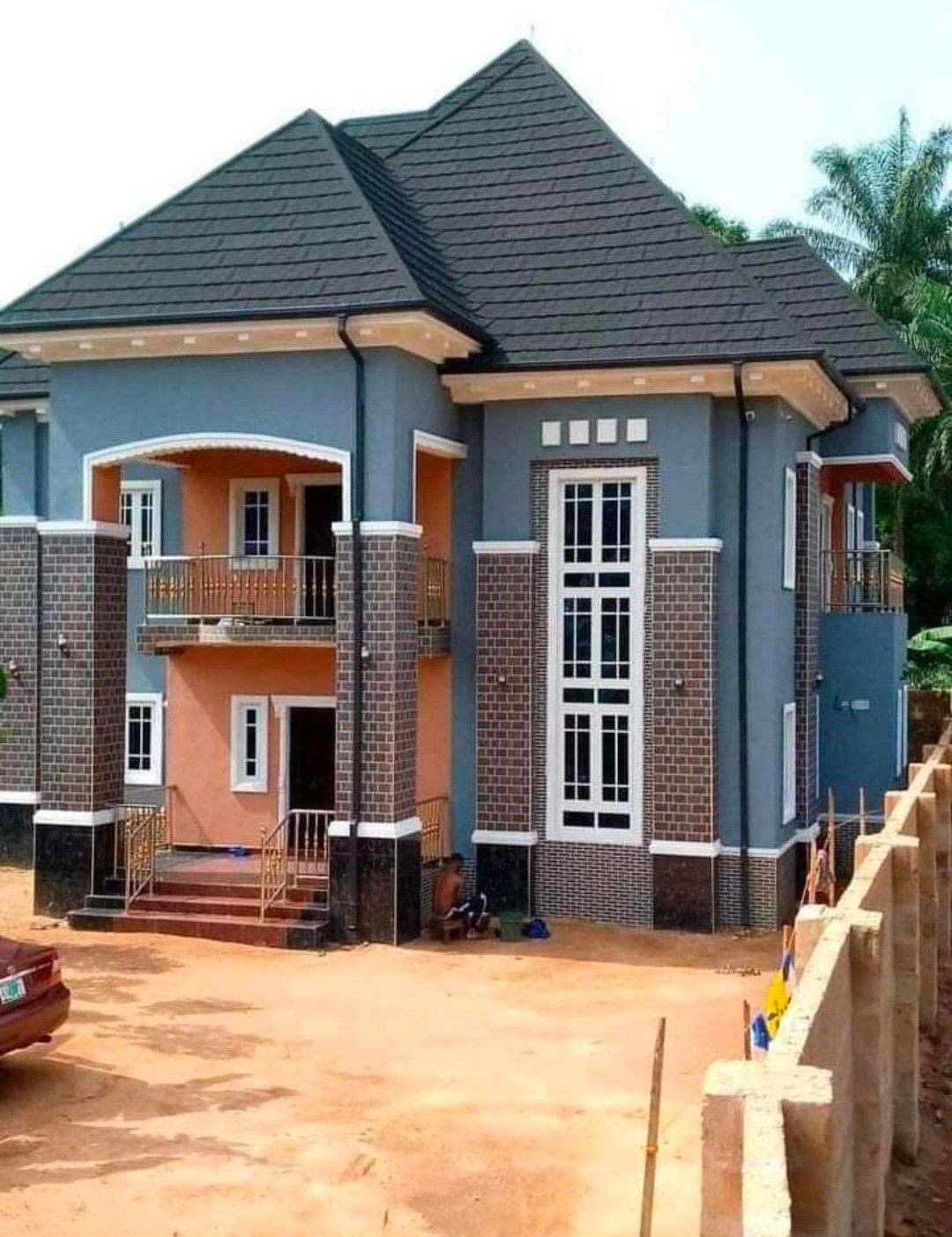
Interior Design
The interior design often features vibrant colours that reflect the nation’s love for life and energy. Living rooms are typically spacious, with bold patterns and bright colours dominating the scene. Common decorative elements include African masks, pottery, and intricate beadwork, which add an authentic touch to the home’s decor.
In many Nigerian homes, the use of earthy tones and natural materials like wood, bamboo, and raffia is common. These materials help create a warm and inviting atmosphere, blending the interior with the natural surroundings. Luxurious textiles like “Ankara” and “Aso-Oke” are used for upholstery, curtains, and even wall hangings, adding a splash of colour and texture to the rooms. Furniture is often handcrafted, with an emphasis on durability and comfort. Some pieces have a historical significance like the Yoruba chair which are common in more affluent homes, indicating status and heritage. 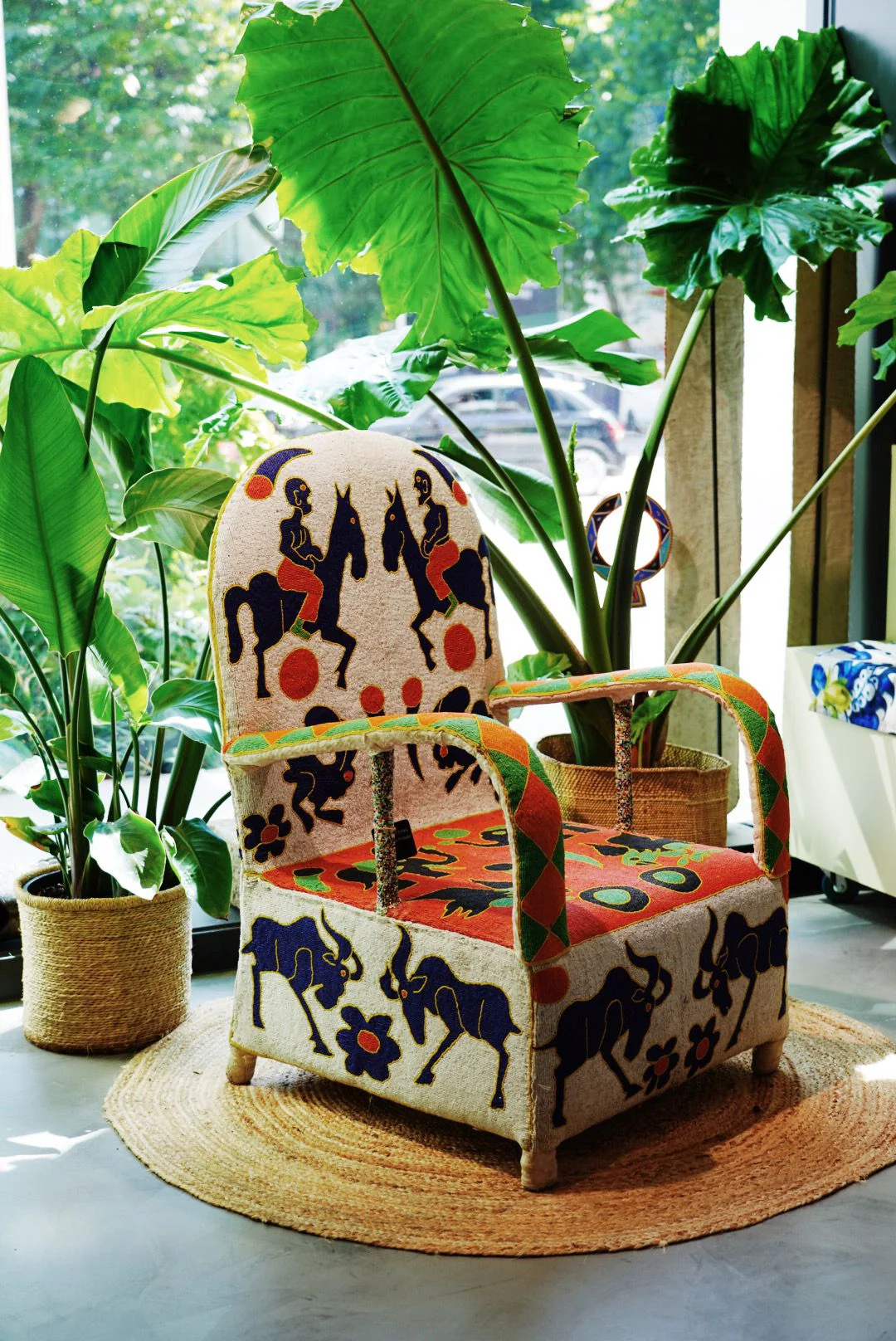
Decorative Elements
Decoration in Nigerian homes is not just about aesthetics; it’s a celebration of local craftsmanship and heritage. Traditional Nigerian art plays a significant role in home decor, with wall paintings, sculptures, and woven baskets adorning many homes. These pieces are often sourced from local artisans, supporting the community and preserving traditional crafts.
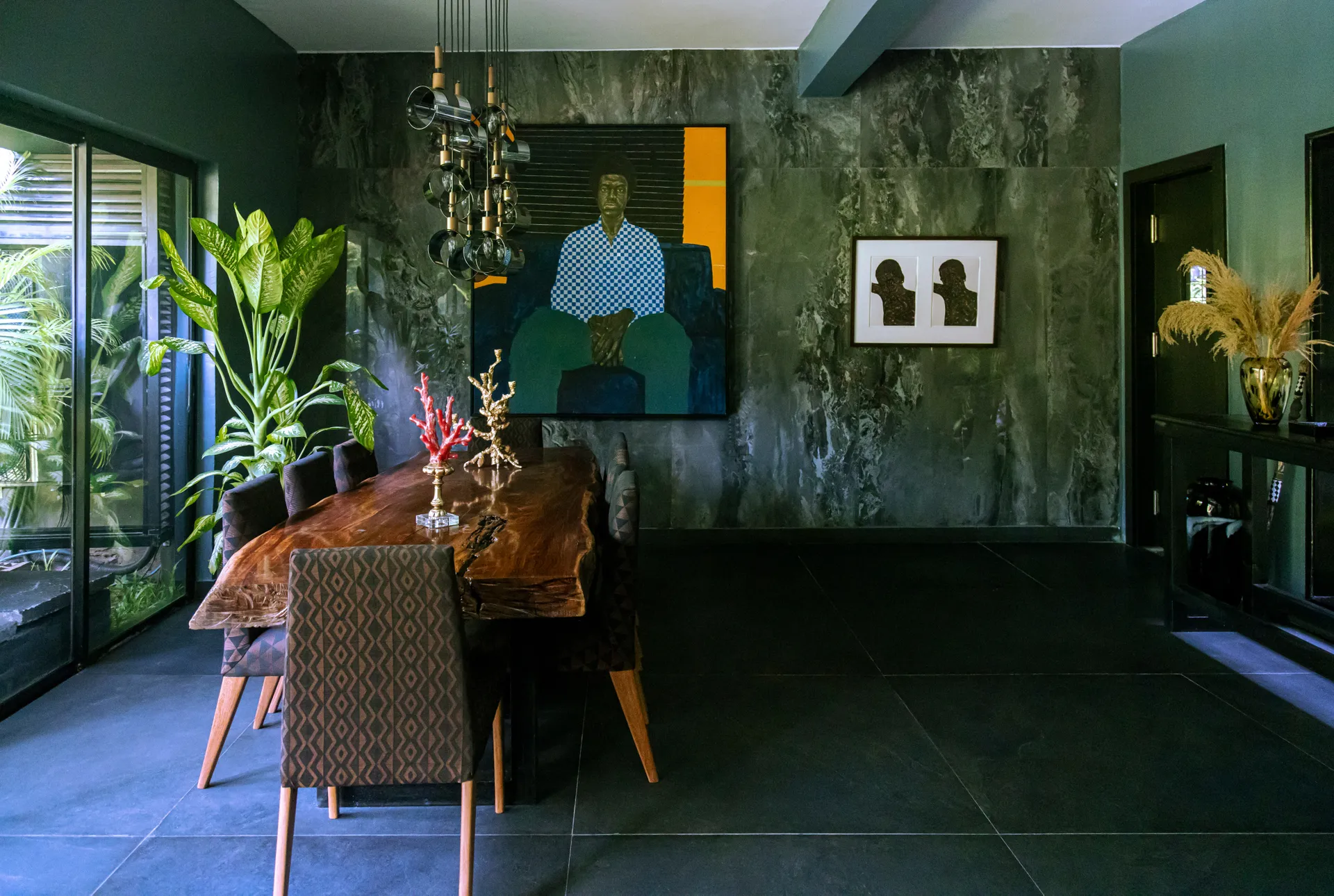
Another distinctive feature is the use of plants and flowers, both inside and outside the home. Nigerians love to incorporate greenery into their living spaces, with lush gardens and potted plants adding freshness and life to the environment. This connection with nature is a key aspect of Nigerian lifestyle and adds to the holistic appeal of their homes.
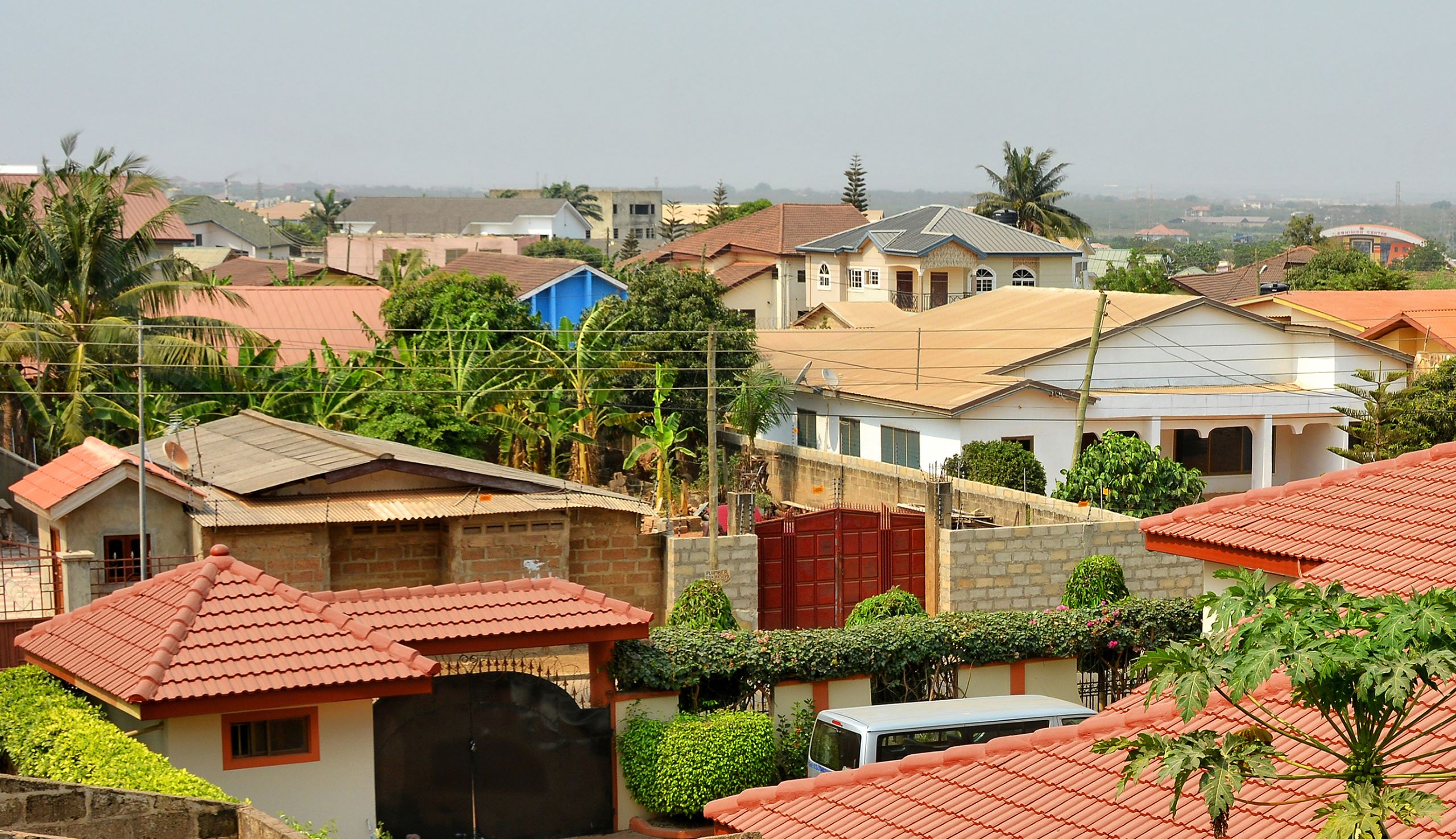
Entertaining at Home
Nigerian homes are designed with hospitality in mind. The living room, often the largest room in the house, serves as the heart of the home where families entertain guests. It is not uncommon for Nigerian families to have large living spaces equipped with comfortable seating, audio-visual equipment, and sometimes even a bar area.
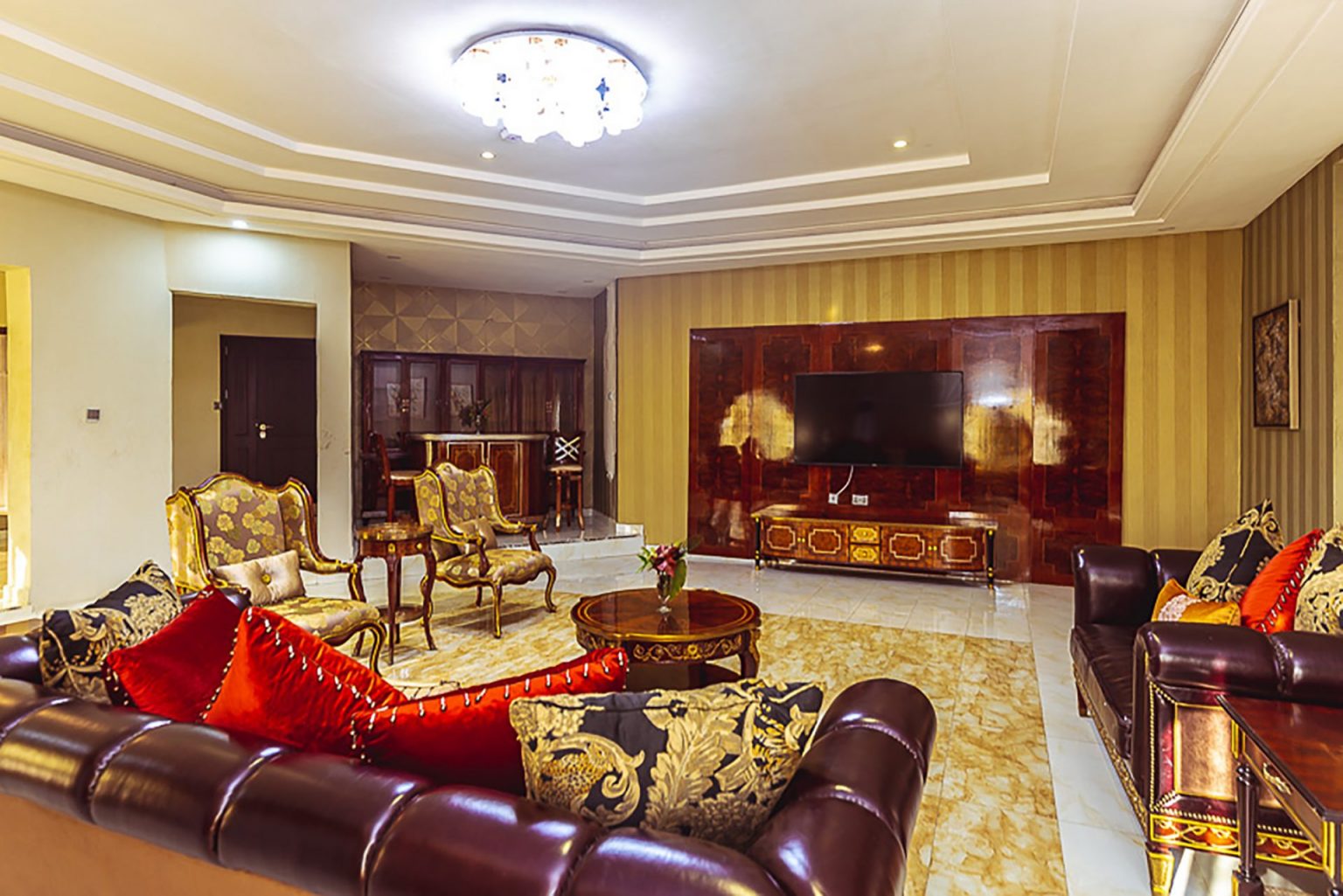
Entertaining in a Nigerian home is an elaborate affair, often centred around food. The kitchen is another vital part of the house, equipped to prepare large meals featuring Nigerian delicacies like Jollof rice, Pounded Yam, and Suya. These dishes are not just food; they are and are used to express generosity and hospitality.
Dining areas are usually spacious, with large tables to accommodate family and friends. Outdoor entertaining is also popular, especially in homes with gardens or patios, where barbecues and outdoor dining are common.
Nigerian homes are more than just structures; they are a reflection of the country’s soul and spirit. Whether you are visiting a Nigerian family or just exploring their homes from afar, you will be touched by the warmth, richness, and diversity of Nigerian home life.

